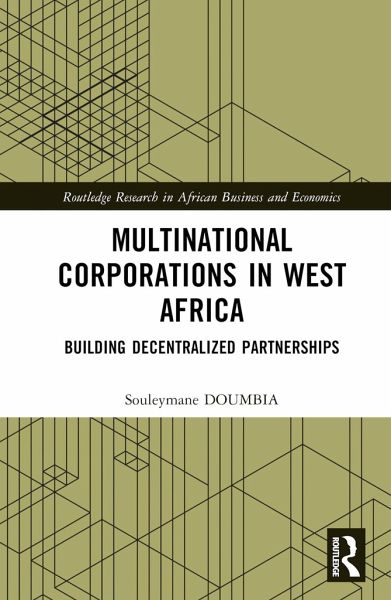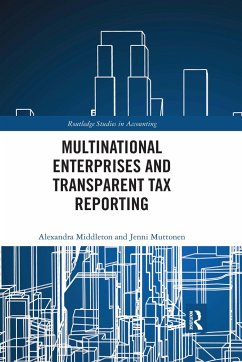
Multinational Corporations in West Africa
Building Decentralized Partnerships
Versandkostenfrei!
Versandfertig in 6-10 Tagen
154,99 €
inkl. MwSt.
Weitere Ausgaben:

PAYBACK Punkte
77 °P sammeln!
This book investigates the relationship that Multinational Corporations form with Local Authorities and governments in West Africa. It argues that informal partnerships at the local level can provide significant socioeconomic benefits to communities and overcome shortfalls in state provision of infrastructure and collective goods and services.Drawing on in-depth case studies in Niger, Ghana and Liberia, the book demonstrates that Decentralized Partnerships benefit from lower transaction costs while maintaining profitability and investment protection, whereas in formal relationships between mul...
This book investigates the relationship that Multinational Corporations form with Local Authorities and governments in West Africa. It argues that informal partnerships at the local level can provide significant socioeconomic benefits to communities and overcome shortfalls in state provision of infrastructure and collective goods and services.
Drawing on in-depth case studies in Niger, Ghana and Liberia, the book demonstrates that Decentralized Partnerships benefit from lower transaction costs while maintaining profitability and investment protection, whereas in formal relationships between multinationals and local government, asset specificity and uncertainty are high. By complying with informal rules, which are in many ways just as restrictive as formal rules, Multinational Corporations can adapt and acculturate themselves, become actors of territorial authorities and can get around the incompleteness of the contract that binds them to the state.
Reflecting ona range of local projects (educational, infrastructural, health, micro-financial, entrepreneurial), this book provides a rich and detailed assessment of the interactions between Local Authorities and Multinational Firms.
The book will be useful to upper-level students and researchers across the fields of economics, business, sociology, anthropology and African studies as well as to development practitioners and regional and international organizations with interest in the functioning of Multinational Corporations in local environments.
Drawing on in-depth case studies in Niger, Ghana and Liberia, the book demonstrates that Decentralized Partnerships benefit from lower transaction costs while maintaining profitability and investment protection, whereas in formal relationships between multinationals and local government, asset specificity and uncertainty are high. By complying with informal rules, which are in many ways just as restrictive as formal rules, Multinational Corporations can adapt and acculturate themselves, become actors of territorial authorities and can get around the incompleteness of the contract that binds them to the state.
Reflecting ona range of local projects (educational, infrastructural, health, micro-financial, entrepreneurial), this book provides a rich and detailed assessment of the interactions between Local Authorities and Multinational Firms.
The book will be useful to upper-level students and researchers across the fields of economics, business, sociology, anthropology and African studies as well as to development practitioners and regional and international organizations with interest in the functioning of Multinational Corporations in local environments.














